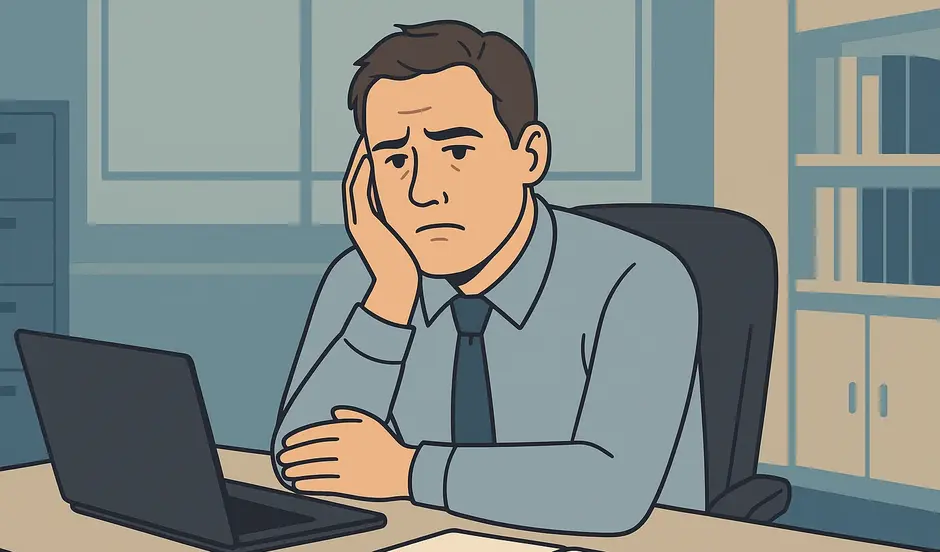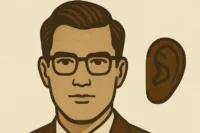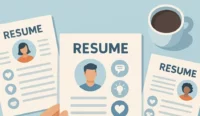Most professionals experience a moment when life feels like it’s happening to them rather than with them. You may have the job, the title, and even the success you once dreamed of, but something inside whispers: “Is this really it?”
That moment of misalignment can feel confusing and scary. But it is also the beginning of transformation. Feeling stuck doesn’t mean you’re broken, lazy, or unmotivated—it simply means your current path no longer aligns with who you are today.
This article breaks down why smart, capable people stay stuck for years, the hidden signs it’s time for a change, and practical steps to move forward without blowing up your life overnight.
Why Feeling Stuck Happens
Being “stuck” isn’t about failure. It’s about misalignment. A career or lifestyle that once felt right may no longer match your values, interests, or vision for the future. No amount of gratitude journals or late-night hustling can force it to fit again.
According to Gallup, 60% of workers report feeling emotionally detached from their work. That’s not just a bad day—it’s a chronic state of disconnection. Many professionals describe their life as “performing” rather than living, checking boxes but feeling empty inside.
This misalignment is often accompanied by three invisible fears.
The Three Fears That Keep People Stuck
1. Fear of Regret
High achievers often ask: “What if I make the wrong move?”
We want the perfect answer, the right timing, the guarantee. But this search for certainty can paralyze us. In reality, careers are rarely one perfect step—they’re a series of adjustments.
2. Fear of Judgment
Changing course invites opinions. You’ve built a reputation as the expert, the reliable one, the accomplished professional. To pivot feels like opening yourself up to criticism or disappointment.
The truth? People will judge you no matter what you do. The only question is: whose opinion matters most—yours or theirs?
3. Fear of Identity Loss
This one runs deep: “If I’m not this, who am I?”
When your identity is built around a role, a degree, or a title, letting it go can feel like a death. But identities evolve. What once defined you doesn’t have to limit you forever.
The Psychology Behind Staying Stuck
Why does change feel so dangerous? Psychologists call it status quo bias. Our brains interpret what’s familiar as safe, even if it makes us miserable. The unknown, on the other hand, triggers our fear center like a fire alarm.
This is why even deeply unhappy professionals stay in roles long past their expiration date. It feels “safer” to tolerate the familiar than to face the unknown.
But as Joseph Campbell once said: “The cave you fear to enter holds the treasure you seek.”
Hidden Signs It’s Time for a Change
Most people wait for a crisis before they finally make a change. But subtle signs appear much earlier:
- Daydreaming about a different life – not just a vacation, but a completely different path that excites you.
- Performing instead of living – going through the motions of your role, feeling like you’re wearing a costume.
- Your body is whispering (or yelling) – chronic fatigue, headaches, or stress symptoms that no amount of sleep or yoga can fix.
If these sound familiar, they may be breadcrumbs pointing toward change.
How to Get Unstuck Without Blowing Up Your Life
You don’t need to quit tomorrow or overhaul everything at once. Real change often begins with small but intentional steps.
1. Ask Better Questions
Instead of asking, “What should I do?” try: “Who do I want to become?”
This shifts the focus from chasing job titles to creating a vision for the person you want to be a year from now.
2. Take Tiny Bold Moves
Big leaps are inspiring, but small, consistent actions build momentum. Examples:
- Signing up for a class or workshop in something you’re curious about
- Journaling daily to reconnect with your values
- Quietly exploring a side project that excites you
Action, even small action, reduces fear.
3. Create a Future You Want to Run Toward
Don’t just escape what you hate—move toward what you love. A clear vision, even if blurry, is more powerful than running from burnout.
As Howard Thurman said: “Don’t ask what the world needs. Ask what makes you come alive and go do it.”
You Are Not Broken
If you’re feeling stuck, here’s what to remember:
- You are not behind.
- You are not too old.
- You are not broken.
You’re in a season of awakening, and that’s a powerful place to be. The goal is not to overhaul your life overnight, but to reconnect with the spark that makes you feel alive.
FAQs
1. How do I know if I’m really stuck or just burned out?
Burnout is exhaustion from overwork; being stuck is deeper—it’s misalignment. If rest doesn’t restore your energy or sense of purpose, you may be stuck.
2. Do I need to quit my job to get unstuck?
Not necessarily. Many people start with small experiments—side projects, classes, or networking in new fields—before making big career shifts.
3. What if people judge me for changing careers?
They will. That’s human nature. The real question is: do you want to live your life for their approval or for your own fulfillment?
4. How can I overcome the fear of making the wrong move?
Reframe decisions as experiments, not permanent commitments. You’re allowed to adjust and pivot—your next move doesn’t have to be forever.
5. How long does it take to reinvent yourself?
It varies. Some shifts happen in months, others take years. What matters is consistent action in the direction of alignment, not the speed.
Final Thought
You don’t need to burn everything down to change your life. You just need one spark, one small shift, one bold decision to start. Feeling stuck isn’t the end—it’s the beginning.






